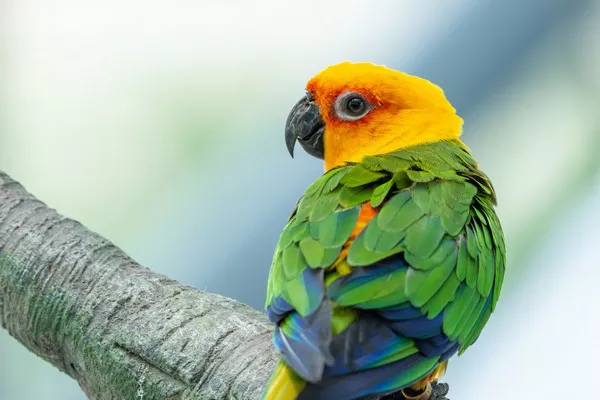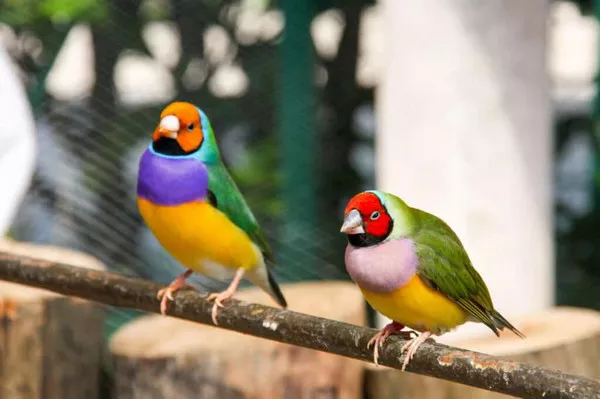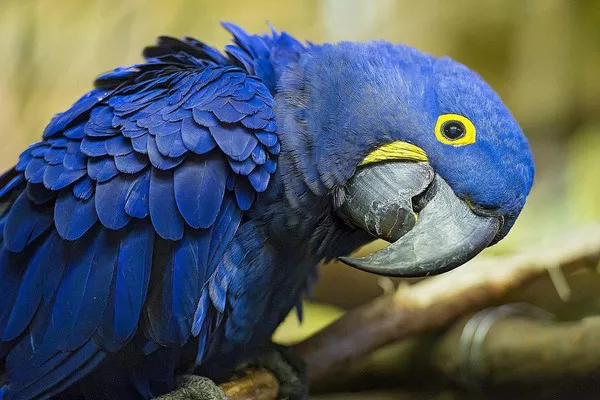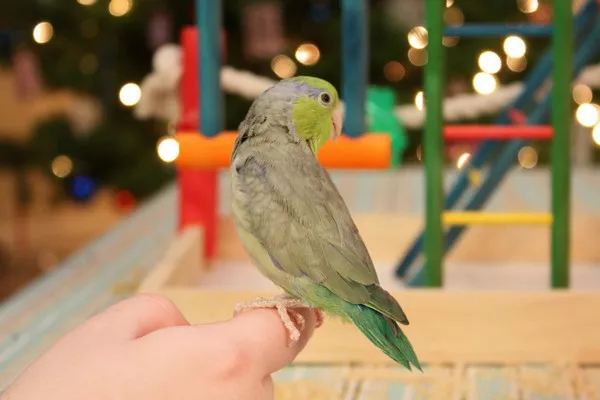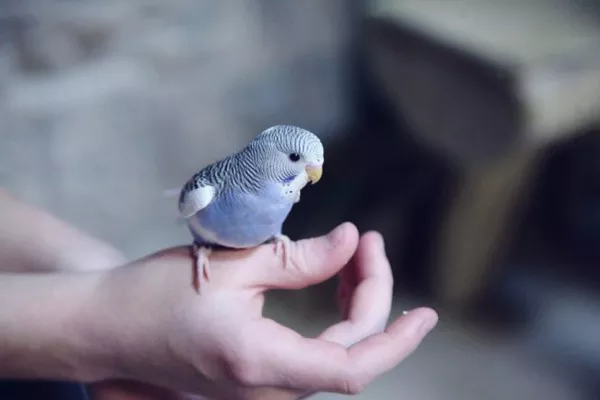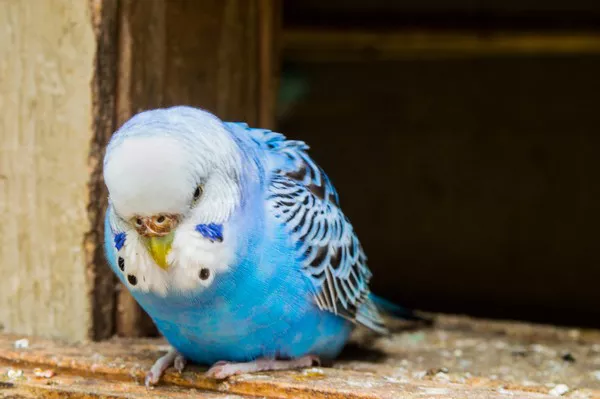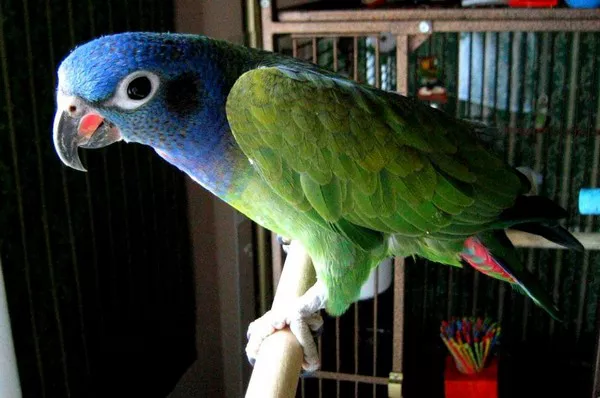The Sun Conure, also known as the Sun Parakeet, is a strikingly beautiful bird known for its vibrant colors and playful personality. These parrots are not only visually stunning but also have fascinating behaviors and social dynamics that make them popular among avian enthusiasts. In this article, we will delve into the Sun Conure’s characteristics, habitat, care requirements, and the reasons behind its popularity as a pet. By the end, you’ll have a comprehensive understanding of what makes the Sun Conure a beloved member of the avian community.
Physical Characteristics
Appearance
Sun Conures are easily identifiable by their vivid plumage. They are predominantly yellow, with orange and red patches on their wings, forehead, and chest. Their bright coloration is not only beautiful but also serves a purpose in their natural habitat, helping them blend into the lush, sun-dappled canopies of their native environments.
Size: Adult Sun Conures typically measure about 12 to 14 inches (30 to 36 cm) in length, making them a medium-sized parrot.
Weight: They usually weigh between 90 to 120 grams (3.2 to 4.2 ounces).
Beak: Their strong, curved beak is well-adapted for cracking seeds and nuts, which are essential parts of their diet.
Lifespan
In captivity, Sun Conures can live up to 20-30 years with proper care, making them a long-term commitment for pet owners. Their lifespan in the wild may be shorter due to predation and environmental factors.
Natural Habitat and Range
Geographic Distribution
Sun Conures are native to the northeastern part of South America, specifically in regions like Brazil, Guyana, and Suriname. They are typically found in tropical forests, savannas, and coastal areas. Their preference for warm climates contributes to their vibrant coloration, which reflects sunlight.
Habitat Preferences
In their natural environment, Sun Conures inhabit areas with plenty of trees and open spaces. They are often seen in small flocks, foraging for food among the branches. The dense foliage provides shelter and protection from predators, while the open areas allow for social interactions and playful behavior.
Behavior and Social Structure
Social Animals
Sun Conures are inherently social creatures. In the wild, they live in small flocks, which can consist of up to 30 individuals. Their social nature is a crucial aspect of their behavior, influencing everything from their vocalizations to their interactions with humans.
Communication
Sun Conures are known for their vocalizations. They have a range of calls and chirps that they use to communicate with each other. Their vocalizations can be quite loud, which is something potential owners should consider before bringing one into their home.
Playfulness
These birds are highly playful and enjoy engaging in various activities. They require mental stimulation and physical exercise to prevent boredom and encourage healthy behavior. Providing toys, climbing structures, and interaction with their owners is essential for their well-being.
Reasons for Popularity as Pets
Vibrant Appearance
The Sun Conure’s bright and colorful plumage is one of the primary reasons for its popularity as a pet. Their striking colors captivate bird enthusiasts and casual observers alike, making them a desirable choice for pet owners.
Affectionate Nature
Sun Conures are known for their affectionate demeanor. They often form strong bonds with their owners and can be quite cuddly. Their playful and social behavior makes them enjoyable companions.
Intelligence and Trainability
Sun Conures are intelligent birds that can learn tricks, mimic sounds, and even develop a limited vocabulary. Their high intelligence makes them engaging pets that can be trained to perform various behaviors, enriching the owner-bird relationship.
Low Maintenance Requirements
While they require a specific diet and social interaction, Sun Conures are relatively low-maintenance compared to some other parrot species. Their adaptability and resilience make them suitable for a variety of living situations.
Care Requirements for Sun Conures
Diet
Providing a balanced diet is crucial for the health and well-being of Sun Conures. In the wild, they primarily feed on seeds, fruits, and nuts. A well-rounded diet for a pet Sun Conure should include:
Pelleted Diet: High-quality pelleted food formulated for parrots provides essential nutrients.
Fresh Fruits and Vegetables: Incorporate a variety of fresh produce such as apples, carrots, spinach, and bell peppers to ensure a balanced diet.
Seeds and Nuts: Offer seeds and nuts as occasional treats, as they are high in fat and should not constitute the primary diet.
Housing
Creating a suitable environment for your Sun Conure is vital for its physical and mental health. Key considerations include:
Cage Size: The cage should be spacious enough for the bird to move around comfortably. A minimum size of 24″ x 24″ x 36″ is recommended.
Perches: Provide a variety of perches made from different materials and diameters to promote foot health.
Toys: Regularly rotate toys to keep your Sun Conure engaged and prevent boredom. Chew toys, puzzles, and climbing structures are excellent options.
Socialization
Sun Conures thrive on social interaction. Spend time with your bird daily to build a strong bond and ensure it feels secure. Socialization should include:
Out-of-Cage Time: Allow your Sun Conure to explore outside its cage in a safe, supervised area.
Interaction with Other Birds: If possible, allow your Sun Conure to interact with other birds to fulfill its social needs.
Health Care
Regular veterinary check-ups are essential for maintaining your Sun Conure’s health. Be aware of common health issues, such as:
Feather Plucking: Stress, boredom, or health problems can lead to feather plucking. Addressing underlying issues is crucial.
Respiratory Infections: Proper ventilation and cleanliness in the living environment can help prevent respiratory issues.
Obesity: Monitor your bird’s weight and adjust its diet as needed to prevent obesity, which can lead to various health problems.
Common Health Problems
Nutritional Deficiencies
Inadequate nutrition can lead to various health issues in Sun Conures. Common nutritional deficiencies include:
Vitamin A Deficiency: Symptoms include lethargy, poor feather quality, and respiratory issues. Incorporating dark leafy greens and colorful vegetables can help prevent this deficiency.
Calcium Deficiency: This can lead to weak bones and metabolic disorders. Ensure your bird receives adequate calcium through fortified foods or supplements.
Psittacine Beak and Feather Disease (PBFD)
PBFD is a viral disease that affects many parrot species, including Sun Conures. Symptoms include feather loss, beak deformities, and immunosuppression. There is no cure, so prevention through good husbandry practices is essential.
Aspergillosis
Aspergillosis is a fungal infection that can affect the respiratory system of Sun Conures. It often arises from poor ventilation or damp environments. Symptoms include labored breathing, lethargy, and a decline in appetite. Early detection and treatment are crucial for recovery.
Bacterial Infections
Bacterial infections can occur due to stress, poor hygiene, or improper diet. Symptoms may include diarrhea, lethargy, and loss of appetite. Prompt veterinary care is essential for treatment.
Environmental Considerations
Cage Placement
Where you place your Sun Conure’s cage can significantly impact its well-being. Consider the following factors:
Avoid Direct Sunlight: Place the cage in an area that receives indirect sunlight to prevent overheating.
Drafts and Noise: Ensure the cage is away from drafts, loud noises, and other stressors that could affect your bird’s comfort.
Temperature and Humidity
Sun Conures prefer a warm and humid environment. The ideal temperature range is between 75°F and 85°F (24°C to 29°C). If you live in a dry climate, consider using a humidifier to maintain appropriate humidity levels.
See Also: Why Do Sun Conures Shake Their Wings?
Safety Hazards
Make your home safe for your Sun Conure by eliminating potential hazards, such as:
Toxic Plants: Many common houseplants are toxic to birds. Research and remove any plants that could pose a risk.
Chemicals and Cleaning Supplies: Avoid using harsh chemicals around your bird, as they can cause respiratory issues.
Training and Enrichment
Training Basics
Training your Sun Conure can enhance its quality of life and strengthen your bond. Begin with basic commands, such as “step up” or “come,” using positive reinforcement techniques.
Enrichment Activities
To prevent boredom and encourage natural behaviors, provide enrichment activities, such as:
Foraging Toys: Toys that require your bird to search for treats can stimulate its mind and encourage natural foraging behavior.
Interactive Play: Engage in interactive play sessions, such as fetch or hide-and-seek, to keep your bird entertained and active.
Social Interaction
Social interaction is vital for a healthy Sun Conure. Regularly interact with your bird, whether through talking, playing, or simply spending time together. If possible, consider introducing a second bird to provide companionship.
The Emotional Connection
Bonding with Your Sun Conure
Establishing a strong emotional bond with your Sun Conure can enhance its overall happiness and well-being. Spend quality time together and learn to read your bird’s body language. Recognizing signs of affection, such as head-bobbing or preening, can strengthen your relationship.
Recognizing Stress
Understanding your Sun Conure’s stress signals is essential for its mental health. Signs of stress may include feather plucking, excessive vocalization, or aggression. Addressing the root causes of stress, such as environmental changes or lack of social interaction, is crucial.
Conclusion
In summary, the Sun Conure is a vibrant and affectionate bird known for its striking appearance and engaging personality. Their social nature, intelligence, and playful behavior make them popular companions for bird enthusiasts.
Proper care, including a balanced diet, suitable housing, and regular social interaction, is essential for their well-being. By understanding the specific needs and behaviors of Sun Conures, you can provide a fulfilling and enriching environment for these beautiful birds.
Ultimately, the Sun Conure is not just a pet; it is a companion that can bring joy and warmth to any household. Their unique personality and vibrant colors make them a cherished member of the avian community, ensuring that they remain a popular choice for pet owners worldwide.
Related Topics:

